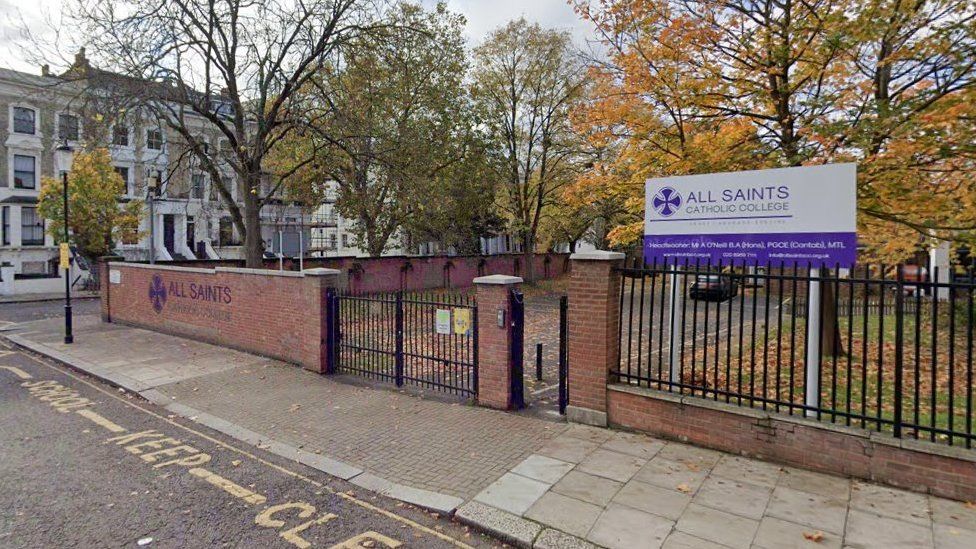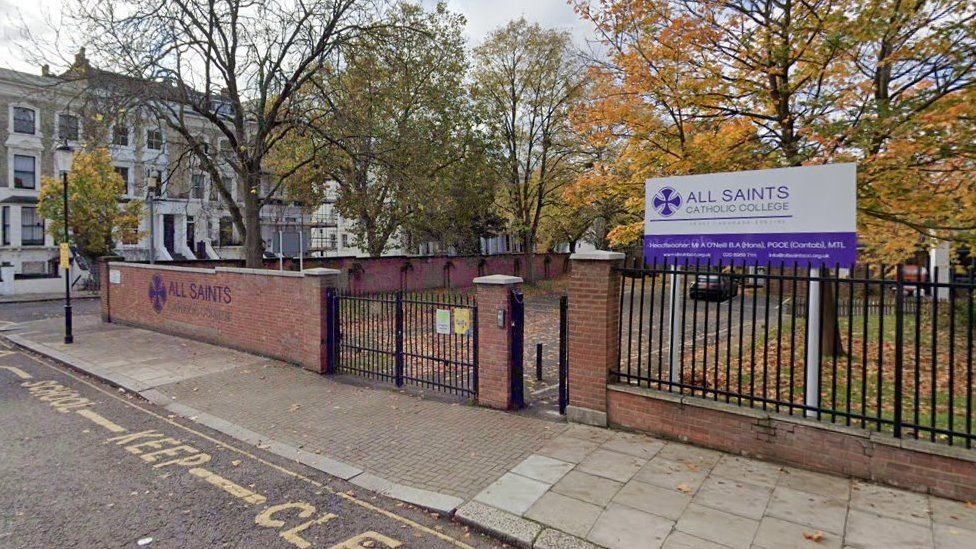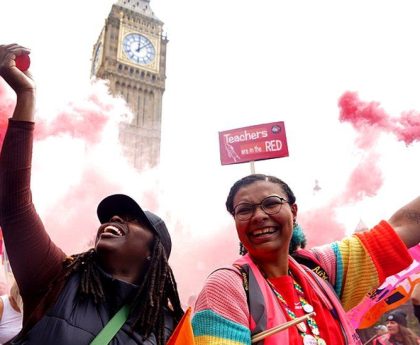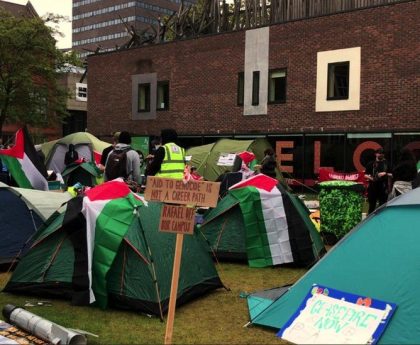 Image source, Google
Image source, GoogleA north London school says it will hold a 10-week pilot of longer school days, where phones are banned, to improve pupil wellbeing and communication.
All Saints Catholic College near Ladbroke Grove, in North Kensington, implemented the scheme to provide its pupils with a "private school service".
Head teacher Andrew O'Neill says pupils do not have to attend the full 11 hours, including breakfast and dinner.
The Department for Education said its own guidance proposed similar measures.
The National Education Union has been contacted for comment. Other leading education unions including the ASCL and NAHT declined to comment.
The voluntary-aided school, which provides co-educational learning for 11 to 16-year-olds, has 797 pupils, and 40% of its cohort are eligible for free school meals.
The pilot will cost parents £10 a week per pupil, which Mr O'Neill says can fund both resources and staffing thanks to support from Kensington and Chelsea Council, alongside educational charities West London Zone and Oracy.
A notice on the school's website said the scheme included breakfast, academic tuition in Maths and English, sports, drama and cooking, followed by a "family dinner".
Mr O'Neill, who won the Pearson National Teaching Gold Award for Secondary Headteacher of the Year 2022, explained the pilot for children in year 7 and 8 was "not compulsory" and those taking part did not have to attend school for the full day of almost 11 hours.
'Private school' offering
"They don't have to come to breakfast, we're not mandating that these children have to be in for seven in the morning – we had about 25 children who were in and enjoyed a nice hot breakfast," he told BBC Radio 4's Today programme on Monday.
"We want to send children home with a bucket load of endorphins, rather than holing up in their bedrooms and looking at screens and not necessarily having those positive relationships," he continued.
Mr O'Neill likened the project to a private school environment, where "a feature of that is receiving at the end of the school day time to complete homework or do prep, as it's called, and another aspect is playing sport and participating in fun activities".
"That's exactly what we're offering in the state system at pretty much low cost to families."
He added the school had many disadvantaged students and "the context in which we are working is really challenging – but our families are really aspirational and value the education that we offer".
Mr O'Neill said pupils taking part in the pilot were not allowed to use their phones while at school but could carry it in their bag if switched off.
'Rise in anxiety'
"A lot of research that we're seeing now is pointing to a huge amount of rise in anxiety amongst pre-teens and teenagers, and it has been increasing since 2010, since the rise of the smartphone," he said.
He added the scheme would only last for 10 weeks as "we wouldn't be able to afford it for the whole school year", he added.
A Department for Education spokesperson said: "We published guidance earlier this year prohibiting the use of mobile phones throughout the school day, including at break times.
"Our guidance backs headteachers to create safe and calm environments free from distraction so all pupils can receive the education they deserve.
"We support parents to make the right choices for their child regarding after school activities."

Follow BBC London on Facebook, Twitter and Instagram. Send your story ideas to hellobbclondon@bbc.co.uk
Related Internet Links
Source: https://www.bbc.co.uk/news/uk-england-london-68881898





